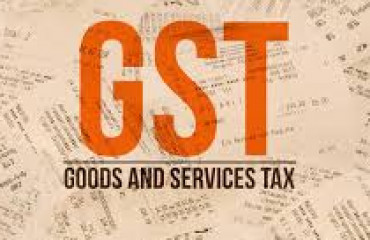
The move has the potential to boost tax collections as businesses and traders may have to use cash payments where tax credits cannot be used.
The move has the potential to boost tax collections as businesses and traders may have to use cash payments where tax credits cannot be used. It is also likely to force businesses to ensure tax compliance of their raw material and service suppliers so that the taxes paid at the time of purchase of these items get reflected in GST's IT system as credit available, without delay.
Availability of tax credits has been among the long-standing areas of dispute between businesses and the government, as it is directly linked to the compliance of other entities in the supply chain. Businesses have often complained that they are not able to avail of credit for the taxes paid on purchase of raw materials and services because these suppliers have not paid to the government the indirect tax collected at the time of these supplies. On the other hand, the government is of the view that businesses have to engage with honest suppliers and that it was difficult to give credit to a business for the taxes the exchequer has not received.
Experts said the GST Council's decision to introduce a way of dealing with differences in the auto-generated GST credit statement of a business and what has been claimed in the monthly tax return showed the intention to improve transparency in doing business, but its implementation could pose challenges. The idea is to ensure compliance by sending system-generated notices to taxpayers asking them to explain excessive tax credit claims if it crossed a threshold. "This will help in reducing input tax credit (ITC) mismatches and misuse of ITC facility in GST," the council said in a statement on Tuesday.
Increasingly, the trend is to put the onus on larger corporations to ensure tax compliance by their suppliers.
The GST Council's objective is to prevent taxpayers from taking input tax credit that is not reflected in the auto-generated tax credit statement GSTR2B form, explained Abhishek Jain, partner and national head, indirect tax, at KPMG in India.
"It remains to be seen how the scheme is operationalized. Even today, businesses try to ensure tax compliance by their vendors so that credit for the taxes paid on their purchases are available in a timely manner. The council's decision takes this to the next level as they have to explain to the tax department about mismatches," said Jain.
Amit Maheshwari, tax partner at AKM Global, a tax and consulting firm, said the council's measures represented a dynamic move towards alleviating ITC discrepancies and restraining fraudulent ITC activities.
"While it is a significant move towards improved transparency and clampdown on illicit transactions, the implementation could pose challenges to genuine businesses, potentially prompting severe recoveries for unintentional errors. Thus, it is imperative to find equilibrium, ensuring control over malpractices without compromising a business-friendly ecosystem," said Maheshwari.
